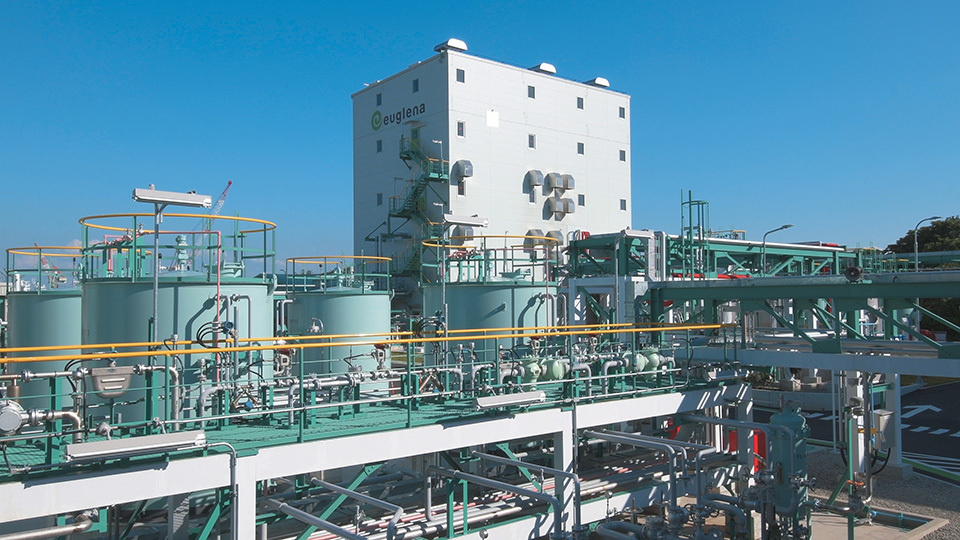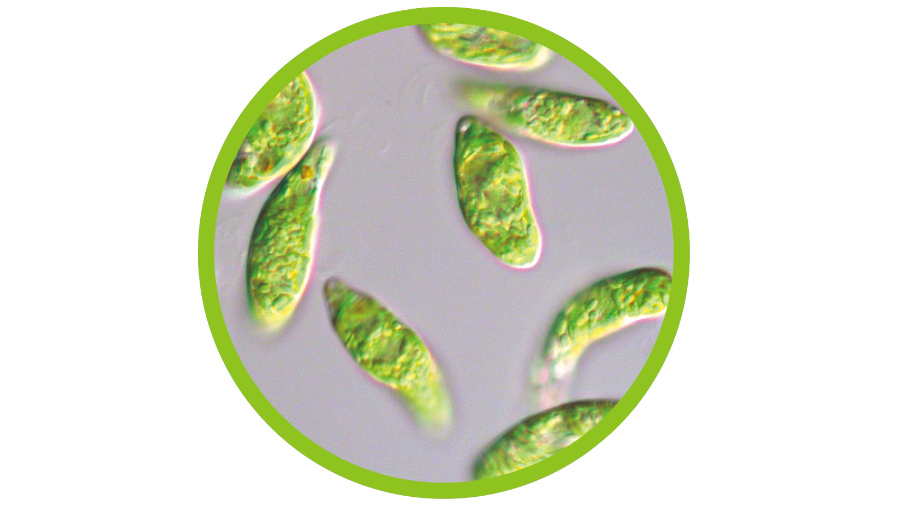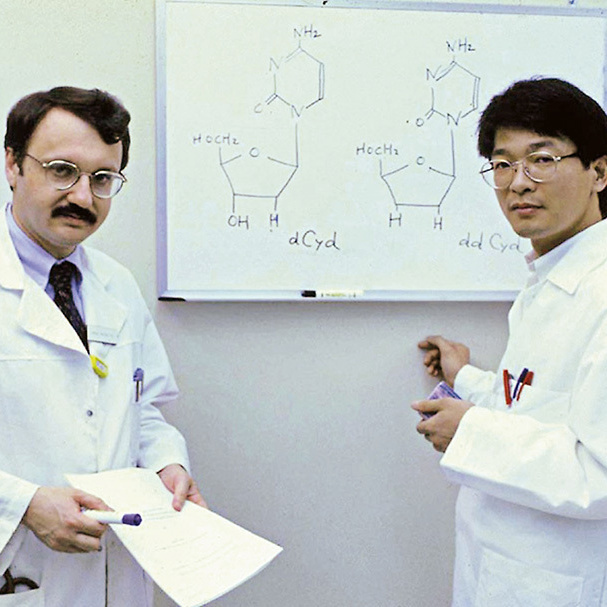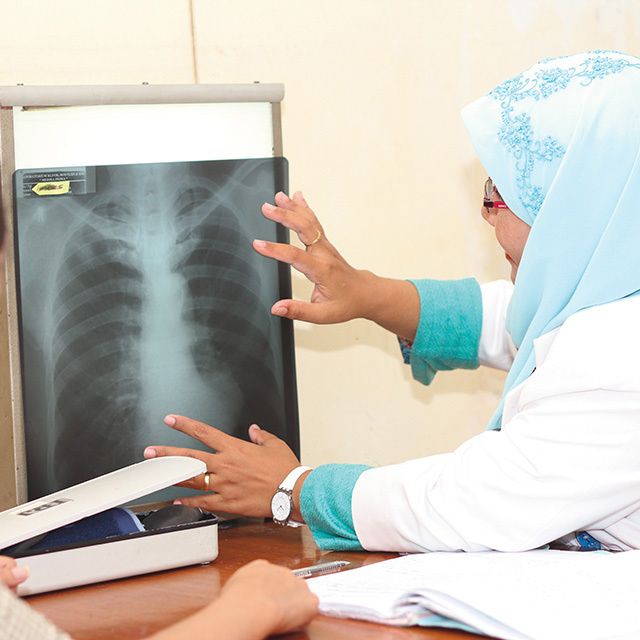The world has always been beset by many problems, but what if there were something we could do to address many of the big ones all at once? A microbe from Japan could provide the means.
The microbe in question is called euglena. At about 0.05 millimeters wide, or 50 microns, it is a type of algae, but possesses the properties of both a plant and an animal. The well-balanced nutritional composition from those two kingdoms makes euglena highly nutritious. Owing to euglena’s potential as an excellent source of food, countless attempts have been made to cultivate the microbe on a large scale, but due to its high nutritional value, euglena is also a favorite food of predators such as other bacteria. That poses challenges to cultivation.
Euglena Co., Ltd., a Japanese company, was the first in the world to cultivate euglena on a large scale, and it did so outdoors. It all began when CEO and President IZUMO Mitsuru visited Bangladesh during his university years. In Bangladesh, about 5.5 million children aged five or younger—36% of the total—suffer from stunted growth due to poverty-induced malnutrition.[1] Searching for a way to do something about that, Izumo learned about euglena. He then acted, believing that the microbe could change the world.
At first, Izumo experienced great difficulties with production, with an output equivalent to only one or two grains of rice per month. But after achieving large-scale cultivation through several years of research, the company received halal certification in 2013 to serve Bangladesh’s citizens, the vast majority of whom are Muslim, and in 2014, it produced cookies containing euglena, launching the Euglena “GENKI (Healthy)” Program to distribute the treats for free to Bangladeshi children. Because the ingredients contain the microbe, just six cookies are enough to provide a Bangladeshi child with the required amount of daily nutrition. Thus far, over 9.5 million packs of cookies have been handed out in six years through the program.
In addition to its nutritional value, euglena has also garnered notice for its value as a biofuel ingredient. Instead of using fossil fuels, biofuels are made from biological substances, and their use reduces the CO2 emissions that cause global warming. That is why the EU has declared that it aims to replace 32% of fuel used for transportation with biofuels by 2030.
To make biofuel from euglena, the oil produced by the microbe during its growth is extracted and refined along with other raw materials. The fuel can be used for trucks, buses, airplanes, or other vehicles. Although some CO2 is emitted when burning the fuel, it comes from the air used by the microbe during its growth process, meaning that in the end, euglena biofuel results in fewer CO2 emissions than fossil fuels. While conventional biofuels, using such foodstuffs as maize (corn) or sugarcane, come with the downside of pushing up demand and driving up prices, that problem can be avoided by using euglena instead. The microbe’s cultivation is even possible in deserts, making it a potential solution for resource-poor countries such as Japan.
In 2014, Euglena Co., Ltd. blended the euglena-based original biofuel with conventional fuel to power shuttle buses. At a meeting associated with the G20 Summit in 2019, the firm showcased standard-sized automobiles navigating public roads using that biofuel. By that time, it had achieved further advancements so that a vehicle could run on the biofuel alone, without placing any unusual stress on the engine. Earlier, in 2018, a demonstration plant was completed, obtaining ASTM D7566 certification in 2020. That international standard is the specification for Aviation Turbine Fuel Containing Synthesized Hydrocarbons, as set by ASTM International, which offers global standards development. The certification will allow the company to begin work on producing biofuel for aircrafts.
“Desiring to make a contribution to the world through biotechnology,” Izumo continues to make advances with his little green microbes.
[1] WFP Bangladesh Country Brief December 2017

The day is approaching when biofuel extracted from euglena will power not only buses, but also aircraft.

Euglena Co., Ltd.’s biofuel production plant will be fully operational in 2020, after completing a two-year trial.































